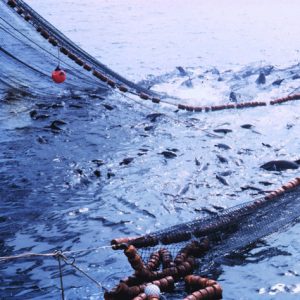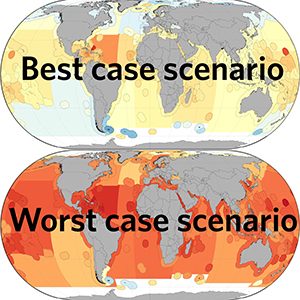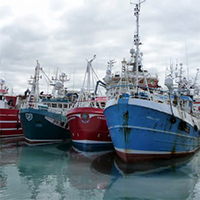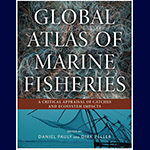Fishing companies lose millions of dollars every year and they don’t know it
Companies could have increased their profits substantially had they allowed fish stocks to rebuild and then fished them sustainably.
Modern slavery promotes overfishing
Labour abuses, including modern slavery, are ‘hidden subsidies’ that allow distant-water fishing fleets to remain profitable and promote overfishing
Women play critical role in fisheries governance, studies suggest
IOF researchers investigated women’s roles in fisheries governance in British Columbia and in the Philippines.
Effective fisheries management can reduce extinction risk of marine fish stocks from climate change
“We can save hundreds of fish stocks from becoming endangered species with sustainable fisheries and low greenhouse gas emissions.”
Fishing fleets travelling further to catch fewer fish
Industrial fishing fleets have doubled the distance they travel, but catch only a third of what they did 65 years ago.
Climate change has fish moving faster than regulations can keep up
Researchers say out-of-date regulatory system hasn’t kept up with the realities of global warming
Reefs help protect vulnerable Caribbean fish from climate change
Researchers predicted that changes in fish community could be reduced by 30 to 80 per cent with a doubling of reef area.
Aid for oceans and fisheries in developing world drops by 30%
Financial aid to fisheries in developing countries has declined by 30 percent, finds a new study from UBC and Stockholm Resilience Centre researchers.
Initiatives to strengthen climate change adaptation in Africa – Cape Town
World Bank technical consultation meeting discusses project to understand the likely impact of climate change through fisheries in African countries
Global marine fisheries catches declining by 1.2 million metric tons every year
The Global Atlas of Marine Fisheries, released by IOF’s Sea Around Us project, looks at global catches, country-by-country, and explores the consequences of this decline, food security, and the steps that can be taken to ease the situation.









